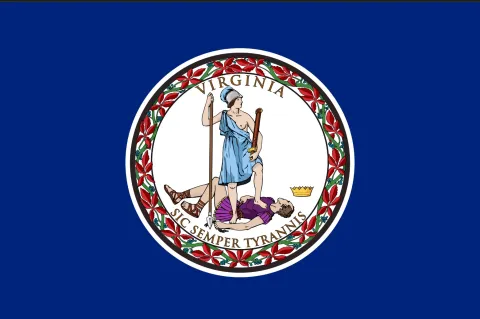
Retiring in Virginia offers a blend of natural beauty, rich history, and modern amenities. The state provides a diverse array of lifestyles, from coastal towns to mountain retreats, making it an appealing destination for retirees. Here's a comprehensive overview of what living in Virginia entails, focusing on key aspects like quality of life, cost of living, crime and safety, healthcare access, weather, and culture, with comparisons to national averages.
Virginia is renowned for its rich history, stunning landscapes, and vibrant communities. The state's overall quality of life is significantly enhanced by its diverse geography, ranging from the Blue Ridge Mountains to the Atlantic Ocean. Virginia offers retirees a variety of recreational activities, including hiking, fishing, and exploring historic sites. The state also boasts a robust economy, which contributes to a higher-than-average quality of life.
Compared to the national average, Virginia scores well in terms of overall quality of life. The state's blend of rural charm and urban convenience allows retirees to enjoy a balanced lifestyle. Virginia also has a relatively low unemployment rate, a good education system, and a well-maintained infrastructure, all of which contribute to a higher standard of living.
The cost of living in Virginia can vary significantly depending on the region. Generally, urban areas like Northern Virginia, especially around Washington, D.C., tend to have a higher cost of living compared to rural areas in the western and southern parts of the state. Housing costs, in particular, can be a significant factor in the overall cost of living. However, compared to other East Coast states like New York and Maryland, Virginia is relatively more affordable.
On average, the cost of living in Virginia is slightly above the national average. Housing, transportation, and healthcare are the primary drivers of this difference. However, retirees can find more affordable options in smaller towns and rural areas, where the cost of living is closer to the national average.
Virginia is generally considered a safe state to live in, with crime rates lower than the national average. The state has a well-established law enforcement system and community policing efforts that contribute to its safety. While urban areas may experience higher crime rates, especially in certain neighborhoods, many parts of Virginia, particularly the suburban and rural areas, enjoy low crime rates.
In comparison to the national average, Virginia has a lower violent crime rate and a property crime rate that is also below average. This makes the state an attractive option for retirees seeking a safe and peaceful environment.
Virginia offers excellent access to quality healthcare, with a network of well-regarded hospitals and medical facilities. The state is home to several top-ranked medical institutions, including the University of Virginia Medical Center and VCU Medical Center. Additionally, Virginia's proximity to Washington, D.C., provides access to some of the nation's best healthcare providers.
Compared to the national average, Virginia's healthcare system is highly regarded, offering a wide range of services and specialties. The state also has a high number of physicians per capita, ensuring that retirees have access to medical care when needed.
Virginia’s overall tax burden is moderate compared to other U.S. states. The state ranks around the middle in terms of the percentage of personal income that goes to state and local taxes. Virginia’s tax structure includes an income tax with progressive rates, which means that higher earners pay a higher percentage of their income in taxes. Additionally, the state levies property taxes that are relatively low compared to the national average, and it has a state sales tax that is also moderate.
Compared to other states, Virginia does not have an exceptionally high or low tax burden, making it an average state in terms of overall taxation. This balance makes Virginia attractive to residents who are seeking a state with reasonable tax rates while still benefiting from well-funded public services.
Virginia's rich cultural heritage is a significant draw for retirees. The state is steeped in American history, with numerous historical landmarks and sites, including Colonial Williamsburg, Monticello, and Mount Vernon. Virginia also boasts a vibrant arts scene, with numerous museums, galleries, and theaters. The state's cultural diversity is reflected in its cuisine, festivals, and community events.
Compared to the national average, Virginia offers a unique blend of cultural experiences, combining Southern hospitality with a cosmopolitan flair. The state's historical significance and commitment to preserving its heritage provide retirees with ample opportunities to explore and engage in cultural activities.
Virginia's climate varies from the humid subtropical conditions in the eastern part of the state to the more temperate climate in the mountains. The state experiences four distinct seasons, with mild winters, warm summers, and beautiful spring and fall seasons. This climate allows for a wide range of outdoor activities throughout the year, from skiing in the winter to beach outings in the summer.
Compared to the national average, Virginia's weather is relatively mild. While the state does experience occasional extreme weather, such as hurricanes or snowstorms, these events are generally less severe than in other parts of the country. The moderate climate is a significant draw for retirees looking to enjoy a variety of outdoor activities.
Virginia offers a compelling mix of factors that make it an attractive destination for retirees. With a high quality of life, relatively moderate cost of living, low crime rates, access to quality healthcare, favorable weather, and rich cultural heritage, the state provides a well-rounded environment for those looking to enjoy their retirement years. Whether seeking a vibrant urban experience or a tranquil rural retreat, retirees can find a suitable home in Virginia.




